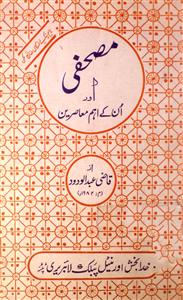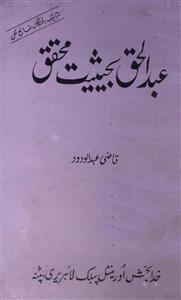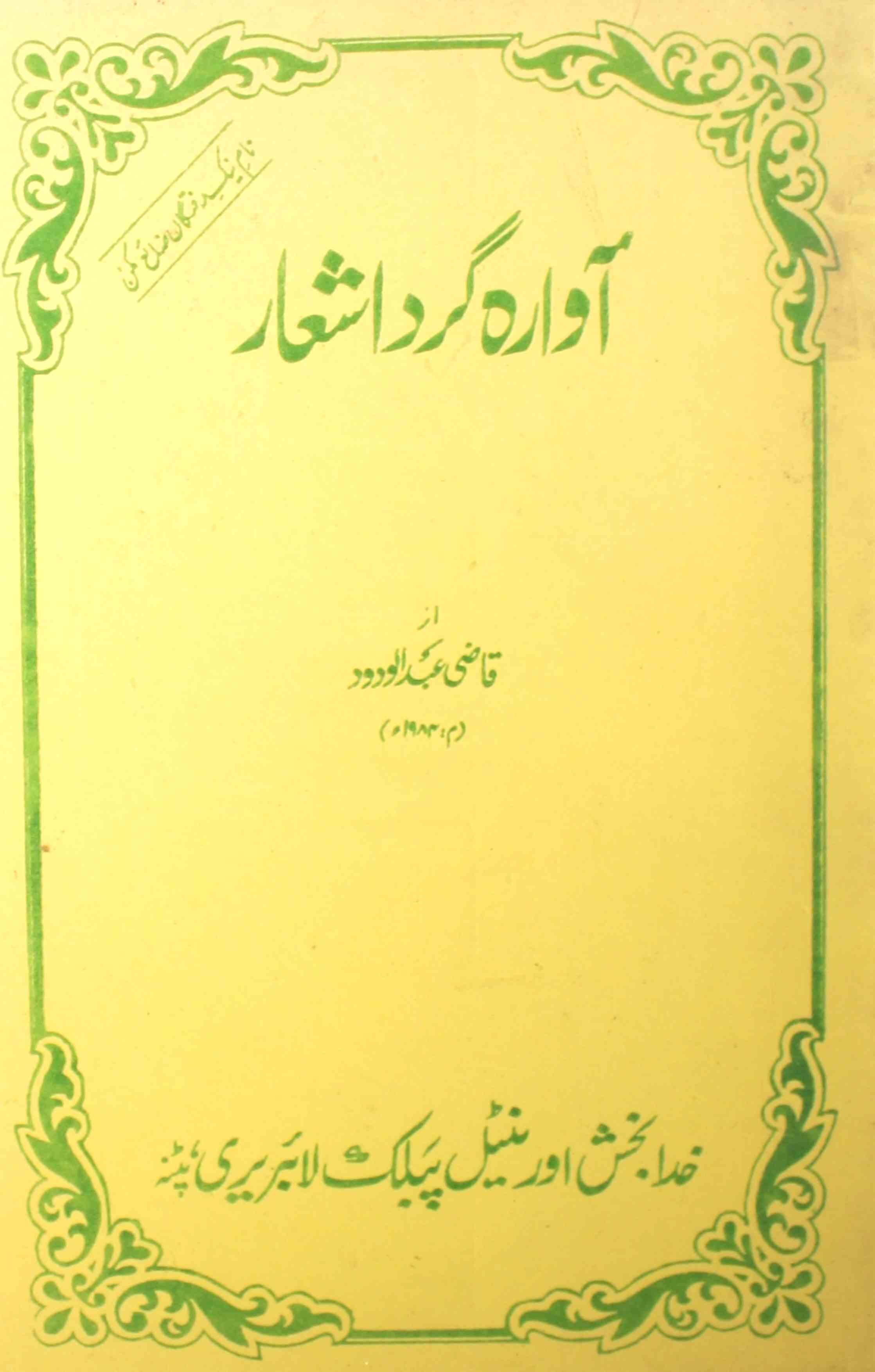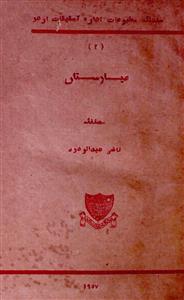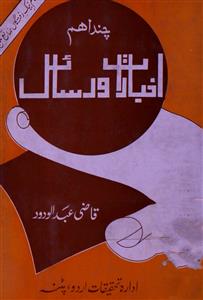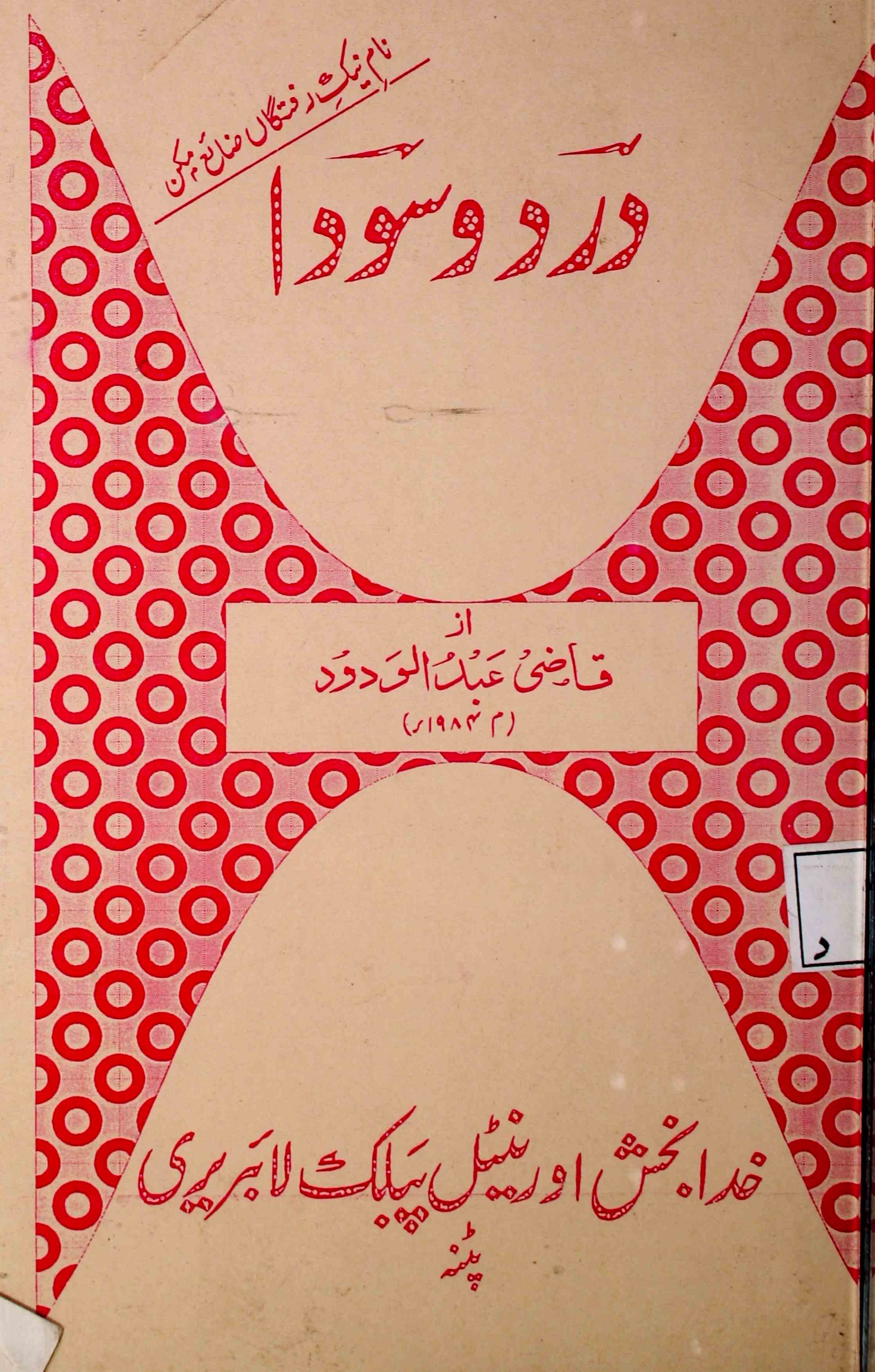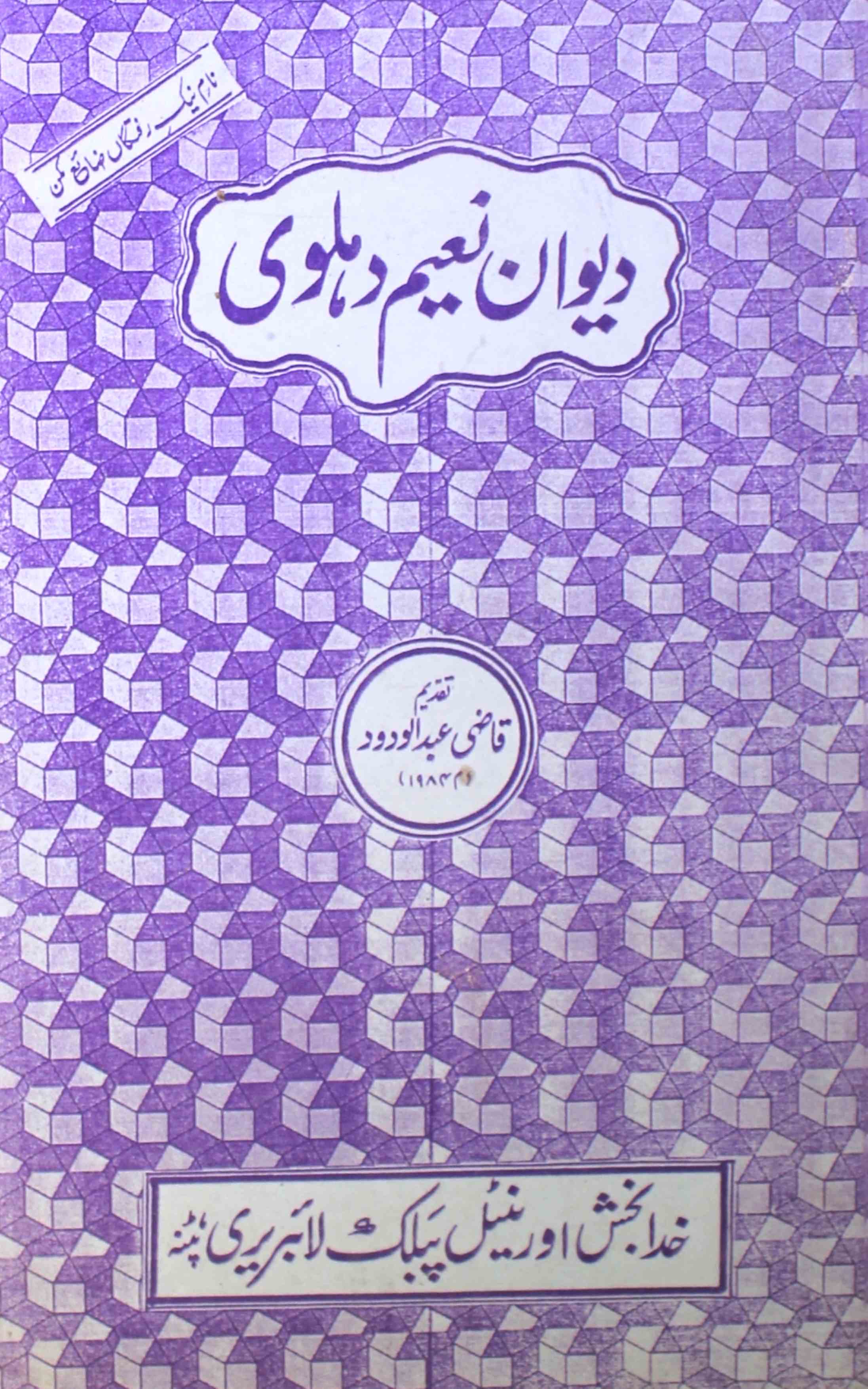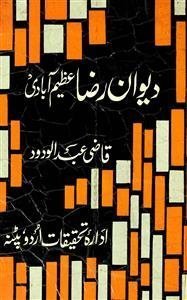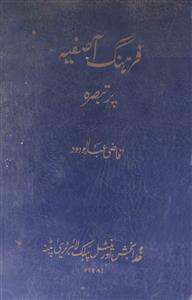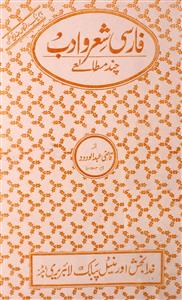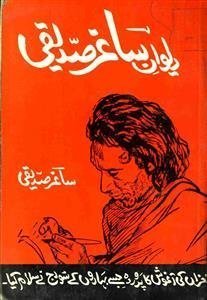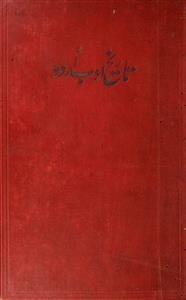 For any query/comment related to this ebook, please contact us at haidar.ali@rekhta.org
For any query/comment related to this ebook, please contact us at haidar.ali@rekhta.org
About The Author
Qazi Abdul Wadud was born in May 1896 in his maternal grandmother’s house in the famous settlement of Jahanabad (Bihar). His father's name was Qazi Abdul Waheed. He belonged to the noble family of his time and also wrote poetry under the pen-name Waheed.
Qazi Abdul Wadud’s earlier education took place at home. Then he began to memorize the Qur’an. He also studied Arabic grammar. Qazi Sahib's father had a strong desire that Qazi Sahib should get the certificate of Alam Fazil.
Qazi’s father was associated with the Ahmad Raza Khan movement and for the propagation of this movement he established a madrassa and issued a monthly. After his death, Qazi took over its editorship. Then, he turned to English, and his English education began at Muhammadan School, Patna. hen in Aligarh he was admitted in the third class. After passing the third grade examination and passing the second grade, he decided to go to England for further studies and under this intention he got admission in Bulgrami Tutorial College. About a year and a half after admission, the founder of this college, Major Syed Hassan Bulgrami, passed away and the college was closed. After that Qazi Sahib gave up his aspiration to go to Europe. In 1916, he took the matriculation examination privately from Patna and got the first division. Then in 1920 he got his BA degree with distinction. After that, due to his participation in the Turkish Mawalat movement, his education was cut off for two or three years. In March 1923, he went to England to complete his education. In 1927, he could not complete the second part of the Cambridge Tripos as he was diagnosed with Pleurisy. After a few months in Cambridge, he was treated at a sanatorium, then moved to Montana for further treatment and climate change on the advice of doctors. In the meantime, he studied philosophy and psychology. After returning to Patna, he continued to practice for a few days and formally turned his attention to scientific, literary and research work.
At the time of Qazi Sahib's father, the weekly "Agra Akhbar" used to come to his house. As a child, he read the newspaper. At that time, Hasrat Mohani's magazine "Urdu Maali" was in vogue. The study of "Urdu Maali" had such a profound effect on him that he became a violent type of Congressman. Then gradually the Congress became detached from its own ideology.
Qazi Sahib's literary and research life began in 1912. In 1913, his first article, which was published in a magazine of the time, was about Urdu poets. In this article, some research issues regarding "Gulzar-e-Ibrahim" author Ibrahim Khan Khalil were clarified. He also wrote poetry in Anfwan-e-Shabab and translated some Persian poems into Urdu. He also translated English fiction. But Qazi Sahib never liked to call himself a poet or a novelist.
Qazi Abdul Wadud was married in 1914 to Shah Nizamuddin's daughter and granddaughter of Khan Bahadur Syed Zameeruddin Ahmed as per his wish. But his wife passed away within a year and a half. In 1922, Qazi Sahib's second marriage was to the daughter of Shah Rashidullah, a leading lawyer and government plaintiff in Patna. The couple had one child, Qazi Masood, who looked after the family property in Bankipur, Patna.
In 1918, on the initiative of Maulvi Abdul Haq, a branch of Anjuman-e-Tarqi Urdu was established in Patna. On his return from England, he and a few friends reshaped the association. In this new case, Lady Anis Imam was elected president and Qazi Abdul Wadud secretary of the association and continued to perform his duties for a long time. In March 1936, the provincial association issued a magazine, "Miyaar", which was discontinued after seven issues due to his ill health.
Qazi Abdul Wadud is known as a perfect researcher in the world of Urdu language and literature. But it's not that his critics are non-existent. But the truth is that there are no other examples of the standard of research that he set. The great thing about Qazi Abdul Wadud is that he does not put personalities in front of him, only writings in his eyes. As if he is related to the text, the weakness of the texts, whether revealed by the author or by the compiler, is both perceptible in his eyes and he seems to be trying to correct it as much as possible.
Around 1970, he became ill again. In 1973, he had a severe heart attack. After a few days of treatment in Delhi, he recovered and returned home. His wife died in mid-1979. This grief was very intense for him. Only a month after his death, in July 1979, his left toes began to paralyze and his right hand stopped working. He died in the same condition on January 25, 1984 in Patna.
 For any query/comment related to this ebook, please contact us at haidar.ali@rekhta.org
For any query/comment related to this ebook, please contact us at haidar.ali@rekhta.org
